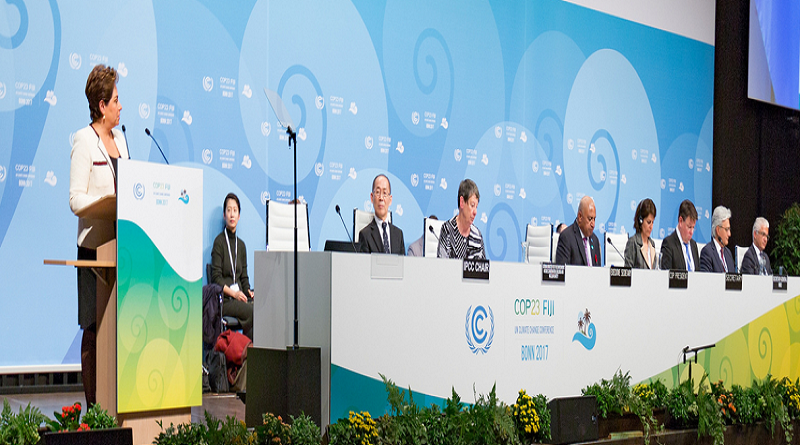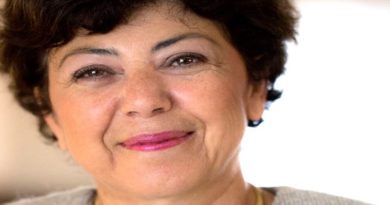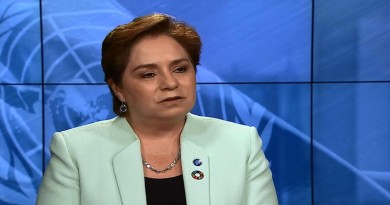Global leaders call for further, faster ambitions as UN climate talks kick-off in Bonn
The 2017 Conference of the Parties to the United Nations Framework Convention on Climate Change (COP23) opens on Monday November 6, 2017 in Bonn, Germany with the aim of launching nations towards the next level of ambition needed to tackle global warming and put the world on a safer and more prosperous development path.
The Conference, coming just two years after the landmark adoption of the Paris Climate Change Agreement, will also further fuel momentum among cities, states, regions, territories, business and civil society in support of national climate action plans, the internationally-agreed temperature goal and the wider objectives of the 2030 Agenda for Sustainable Development.
However, representatives from the African Civil Society Organisations under the umbrella of Pan African Climate Justice Alliance (PACJA) have called on all the parties to commit beyond their current level of emission targets in their Nationally Determined Contributions (NDC) to tackle the devastating climate change.
“All parties must pursue a low carbon development pathway to achieve the desired results,” said Mithika Mwenda, the Secretary General – PACJA.
Extreme Weather Brings Fresh Urgency
Presided over by Frank Bainimarama, the Prime Minister of Fiji and the first small island developing state to hold this role, the conference comes against a backdrop of extreme weather events that have devastated the lives of millions of people in places like Asia, the Americas and the Caribbean.
“The human suffering caused by intensifying hurricanes, wildfires, droughts, floods and threats to food security caused by climate change means there is no time to waste,” said Mr Bainimarama, who takes over as President of the COP23 conference from Morocco during the opening.
“We must preserve the global consensus for decisive action enshrined in the Paris Agreement and aim for the most ambitious part of that target – to limit the global average temperature rise to 1.5 degrees above that of the pre-industrial age,” he said.
“Wherever we live, we are all vulnerable and need to act. Fiji is helping build a Grand Coalition for decisive, coordinated action by governments at every level, by civil society, the private sector and all citizens on earth. That’s why we installed an ocean-going Fijian “drua” canoe in the entrance here to remind everyone of the need to fill its sail with collective determination to make COP23 a success and confront the biggest challenge humanity has faced,” he said.
COP23 in Bonn will respond to that call with new progress and initiatives in the two critical and inter-linked areas of action:
• Governments working to increase climate action under the terms of the Paris Agreement and the UN Climate Change Convention
• Showcasing, fostering and launching new and expanding global climate action initiatives by all actors with a view towards better coordination that aligns efforts in more efficient, effective and transformative ways.
Patricia Espinosa, UN Climate Change Executive Secretary, said: “COP23 in Bonn will show to the world the two faces of climate change—firstly positive, resolute, inspiring momentum by so many governments and a growing array of cities and states to business, civil society leaders and UN agencies aligning to the Paris Agreement’s aims and goals”.
“Secondly, the reality check. The thermometer of risk is rising; the pulse of the planet is racing; people are hurting; the window of opportunity is closing and we must go Further and Faster Together to lift ambition and action to the next defining level, “she said.
Anticipated Highlights of COP23
The conference is itself a welcome mirror of international cooperation and coordination.
COP23 is organized by Bonn-based UN Climate Change, presided over by Fiji and organizationally and logistically supported by the Government of Germany, the region of North-Rhine-Westphalia and the City of Bonn.
Speakers reflect the broad spectrum of action. Those already confirmed include Marshall Islands President Hilda Heine, Arnold Schwarzenegger, UN Secretary-General António Guterres, Paris Mayor Anne Hidalgo, California Governor Jerry Brown, UN Special Envoy Michael Bloomberg, Astronaut Thomas Pesquet, Unilever CEO Paul Polman, Scotland’s First Minister Nicola Sturgeon, and Solar Impulse Explorer Bertrand Piccard.
Close to 20 country leaders are expected to attend, including President Emmanuel Macron of France and German Chancellor Angela Merkel.
Various transformative initiatives are anticipated including one from the UN on health and small islands; a platform to support engagement with Indigenous Peoples; a wide-ranging Gender Action Plan and the ramping up of a global risk transfer project that aims to deliver affordable insurance cover to an extra 400 million poor and vulnerable people.
Urgent Action to Stay Away from Tipping Points
The Paris Agreement is underpinned by national climate action plans known as Nationally Determined Contributions (NDCs) whose ambition needs to be collectively advanced over time to get on track to the Agreement’s temperature goal.
The Agreement’s goal is to keep the global temperature rise well below 2 degrees C and as close as possible to 1.5 degrees C.
Faster, immediate action is urgent because recorded pledges and efforts so far still have the world on track towards a 3C degree rise, maybe higher.
This risks the loss of the Greenland ice sheet, more sea level rise, significant damage to massive natural systems like the Amazon and the predictability of ocean circulation systems.
Currently temperatures have already risen by around one degree Celsius over pre-industrial times.




